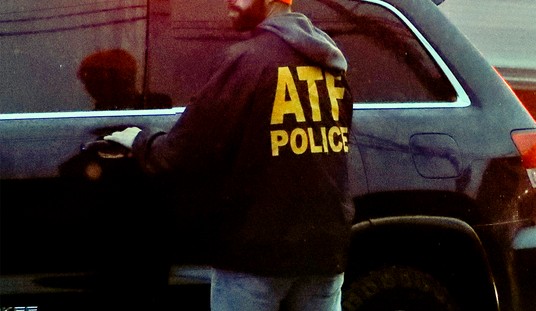Red flag laws are one of those things that might well sound like a good idea in the wake of some kind of horrific tragedy but really aren’t.
See, when you’re talking about hindsight, it’s really easy to see all the points where someone should have done something. It’s also really easy to get tunnel vision and think about the negative outcomes that could result from passing a law like that.
We’ve been saying that for quite a while, of course, but it’s clear that certain politicians aren’t interested in hearing from us.
Maybe they’ll listen to police officials instead.
So-called “red flag laws” have become a recent favorite of gun control activists, who portray them as a way to keep firearms out of “dangerous hands.” The laws empower judges to issue case-by-case firearm prohibition and confiscation orders, upon a petitioner’s showing that the respondent of the order poses a danger to themselves or others. The concept has at times held superficial appeal even to those who might normally support Second Amendment rights. But it’s constitutionality and efficacy wilt under close, critical scrutiny, which is why the NRA opposes the concept. Last week, an unusually revealing article by Bridge Michigan, an independent news source from the Wolverine State, brought another critical voice to the debate: that of the police who will actually be tasked with executing the orders. Entitled “Michigan police agencies sweating enforcement of ‘red flag’ gun laws,” it vividly underscores the difference between theory and practice when it comes to gun control.
Among the officials quoted in the article is Robert Stevenson, executive director of the Michigan Association of Chiefs of Police. He said he supports the idea that people who are “not mentally balanced” should not have firearms, but he is concerned with the practicalities of how police will enforce Michigan’s new red flag law, which takes effect next spring. Stevenson offered several scenarios in which the supposedly “lifesaving” law could itself pose lethal risks.
As he explained to Bridge Michigan:
What happens if the person with the order tries to hurt the officers? What if the person who was deemed suicidal becomes overwhelmed and still poses harm to themselves when their guns are being seized? What if the individual with an order has to be detained by force or even be killed, due to the threat they pose?
From the citizen’s perspective, Stevenson said, it could be a case of: “We’re trying to save somebody in the family. We went to the police to save them, and they killed them.”
The Michigan lawmaker who introduced the state’s new red flag law claims that these concerns are overblown and that no one has been killed during the execution of a red flag order.
That must be a relief to the family of Gary J. Willis. Willis, you may recall, was killed when police showed up at his home to take his guns away. Do you really think that won’t happen again?
It should be noted that many of those who have their guns confiscated by law enforcement due to red flag laws most likely aren’t actually dangerous people. They’re just people who either scared a friend or family member or angered them.
Oh, yeah, let’s remember that the burden of proof for a red flag law is ridiculously low, all things considered. If you wanted to, you could just say they were a threat and describe some fictional scenario and get someone’s guns taken away.
Only, they don’t respond well and get killed instead.
Red flag laws sound great to a ton of people, but they’re really a terrible concept from start to finish.








